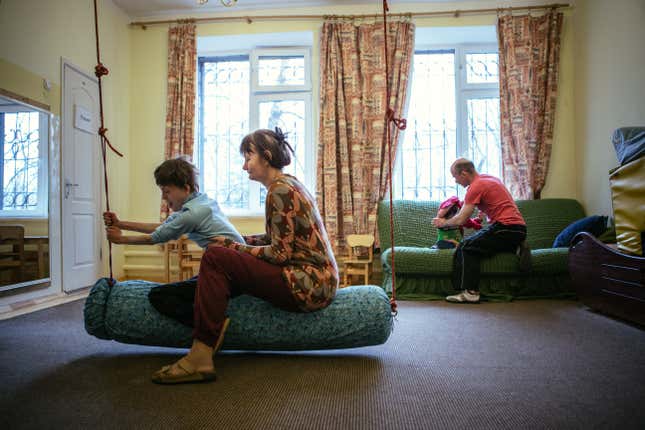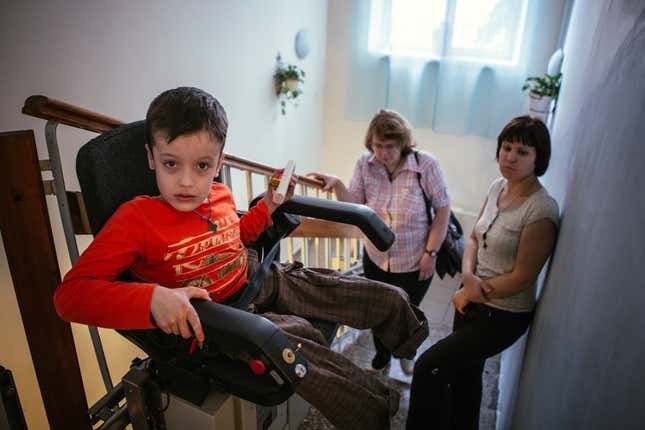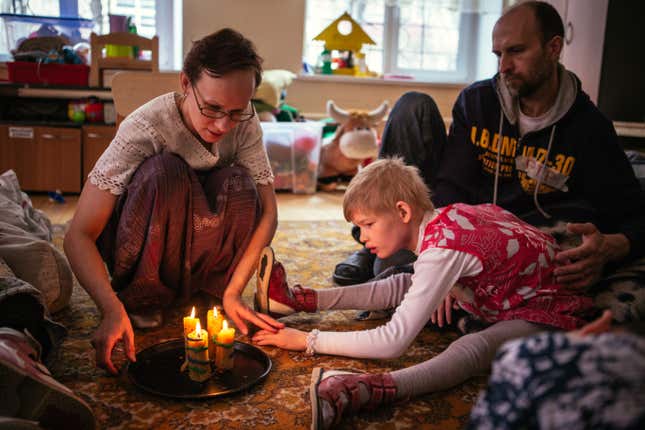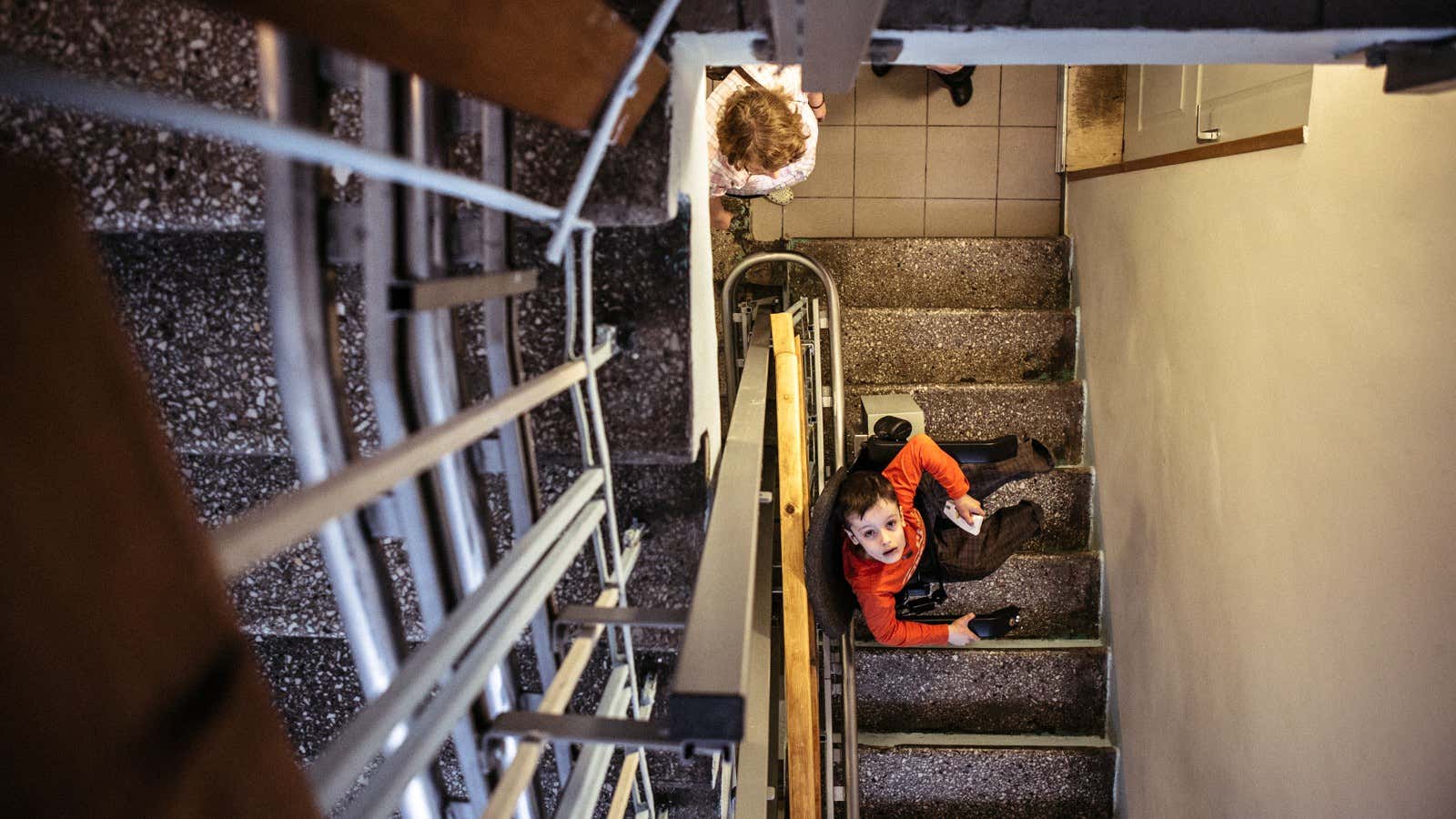In Mar. 2015, Russia’s first private home for children with severe multiple disabilities opened its doors in Moscow.
In state orphanages, such children would be looked after by special branches known as “mercy departments” until they reach 18 years of age. These departments neither develop nor educate, but rather care for children as if they had been in a vegetative state since birth. When they turn 18, the children are transferred to a mental hospital. And that’s where the story ends.
St. Sophia’s orphanage in Moscow aims to change that. Educators, teachers, and speech pathologists are working with 19 disabled children in hopes that then they grow up, these children won’t be simply handed over to mental asylums. Meduza’s Andrei Kozenko went to St. Sophia’s orphanage to find out how it works.
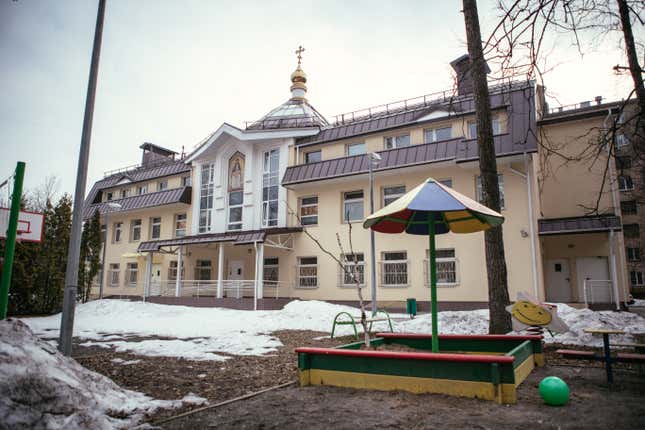
In the depths of a residential area near Moscow metro station Universitet, there is a building that resembles a regular kindergarten, but with a church dome. This is St. Sophia’s orphanage. It was privatized back in the mid-1990s, and since Mar. 2015, it has been Russia’s only private children’s home for children with multiple severe developmental disabilities.
The label “multiple severe developmental disabilities” is usually first encountered by families in maternity wards. Physical damage or cerebral palsy are immediately visible after birth, while Down’s syndrome is determined by a blood test. A positive result is usually followed by a strong recommendation from the doctor to abandon the child. Doctors typically explain that due to the living conditions in Russia, the child will have no prospects for development and adaptation. Even those babies whose parents take them home from the hospital often end up in orphanages by the time they are toddlers, when it becomes clear to the parents that they are very different from other children and that further disparity in development will only grow.
In almost every orphanage, there is a “mercy department.” If a child is placed in a “mercy department,” this means that while other children play with each other and meet with adoptive parents, mercy children simply lie in their beds. Even those who could be taught to walk or talk, or read, or add and subtract are bed-ridden. The walls are bare white. No one plays with these children or teaches them anything; nobody is interested in doing so. Any qualities they might be able to develop are squandered. The next stop is a mental hospital.
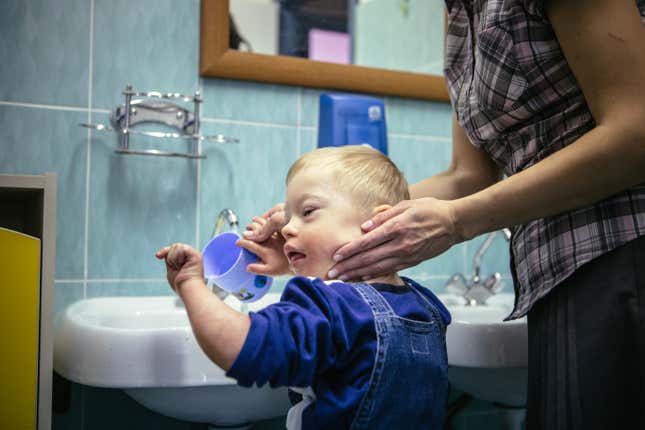
Gor is eight years old. His actual name is Georgy, but here everyone calls him Gor. He is one of the few children in St. Sophia’s orphanage who have no problems with mental development, but he has no control over his lower body. Lacking vital organs, he needs emergency surgery to strengthen his spine. Currently, due to his body alignment, his healthy organs are also suffering.
Most likely, this upcoming surgery will be the first of many. It will be performed in Germany. The operation was planned several years ago, but the state orphanage Gor was staying in would not allow him to travel. They said there was a quota of surgical operations that must be performed in Russia. As a result, Gor could not get his surgery.
“It will hurt so much again,” worries Gor, who is about to go to the hospital for a checkup. Gor has perfect control over his wheelchair, moving like a figure skater on the ice. In a typical orphanage, he would have spent days without getting up. Gor was one of the reasons that this orphanage was opened.
A timetable hangs on the bedroom door of Olga, another child who lives here. The schedule shows what time she went to bed and what time she woke up on a given day. Since the beginning of March, when Olga began living here, her schedule has been gradually stabilizing: “didn’t sleep all night,” “fell asleep at six in the morning,” “went to sleep four in the morning.” Last week’s results were almost the same as those of the other children.
Olga has severe mental disorders and developmental disabilities. She is 17-years-old, but she looks like a small child. She can barely talk. Sometimes she goes into fits of rage and is aggressive towards herself. The wall beside the bed is lined with fluffy pillows, and this is incredible progress. Before, when she had her fits at the state orphanage, Olga would be sent to a mental hospital and strapped to a bed, returning to the orphanage in a semi-conscious state. Any change for the better was suppressed by powerful drugs.
The repeated hospitalizations of Olga, Gor, and other children eventually drew enough attention to catalyzed their escape from state orphanages.
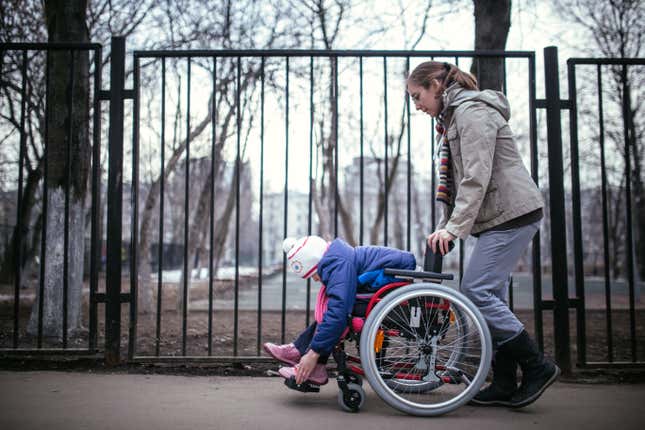
The St. Sophia building used to be an ordinary state orphanage. In 1994, it came under the patronage of the Russian Orthodox Church, and became an autonomous non-profit organization and one of 24 charitable projects of the Orthodox Fund “Mercy.”
Initially boys and girls lived here, then only boys. One child had cerebral palsy, while the rest were ordinary children who were rapidly adopted. Church leaders have since decided to make St. Sophia’s orphanage a home for children with the most difficult disabilities: today, 19 children between the ages of 4 and 17 call this place home, and two more children will soon join them.
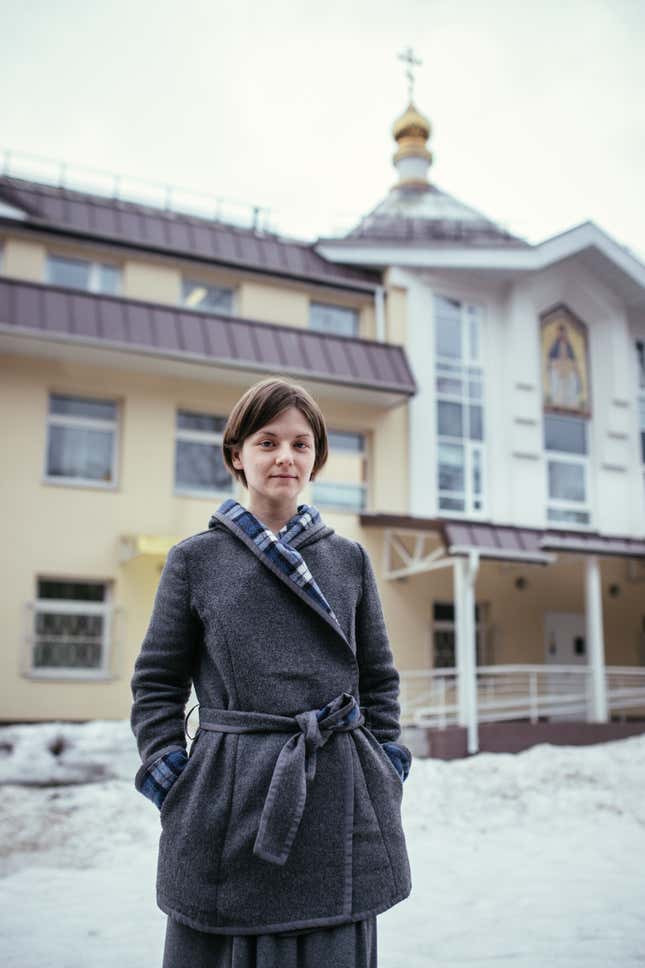
Director Svetlana Emelyanova doesn’t look anything like the typical director of an educational institution. She is very young, modestly dressed and very charming. She literally lives at work, spending almost every night in the orphanage. She was born in the city Astrakhan in the southwest of Russia, and attended the Saratov Conservatory, dreaming of becoming an actress. When she arrived in Moscow, she signed up as a volunteer in an orphanage and later managed to become a senior nurse in state-run home for children, where, she met the children who now find themselves in St. Sophia’s orphanage.
“We will gradually bring the children into the open world. No more planned hospitalization,” says Ms. Emelyanova. She often uses words like “lucky” and “miracle” when talking about her work. Those two words happen to perfectly describe how she came to become the home’s director. The state agreed to give these children over from the care of a huge institution with a “bed capacity” of 450. Ms. Emelyanova’s children’s home happens to be situated very close to the charity organization called Center for Curative Pedagogues, and the speech pathologists there work with her charges.
Children are divided into three groups by age and development. They are led by five teachers and their volunteer assistants. This ratio goes beyond state standards, which require two teachers for every 25 children.
Children here learn to draw and to play music to the best of their ability. Many of them light candles and touch snow here for the first time in their lives. The children are not dressed, but are taught to dress themselves (with the necessary support). “We try as much as possible to bring our children to a life, we walk and play—this is nothing extraordinary,” the director explains. “We just need to understand that our children cannot survive for more than a few hours without the help of adults. Everything else is ordinary.” What the children and caregivers are doing may not be extraordinary, but the fact that they are doing it for the first time is.
Svetlana Emelyanova says that the orphanage wants to extend the custody of children to 23 years. She believes that many of these children would be able to live in their own homes (which the state will allocate by law) if they are monitored and cared for. “I do not want these children to be part of the cycle,” she says.
When we say goodbye, a boy next to me begins to loudly hum some melody of his own. It’s not very harmonious or coherent, so a teacher tries to steer it in some clearer direction, softly singing a song for him. And a minute later the child, not missing a single note, beings to produce a melody of a famous Russian pop song by Alla Pugacheva, which goes “Without me, my love, to you the earth is like a small island.” And then he goes silent, surprised at himself.
